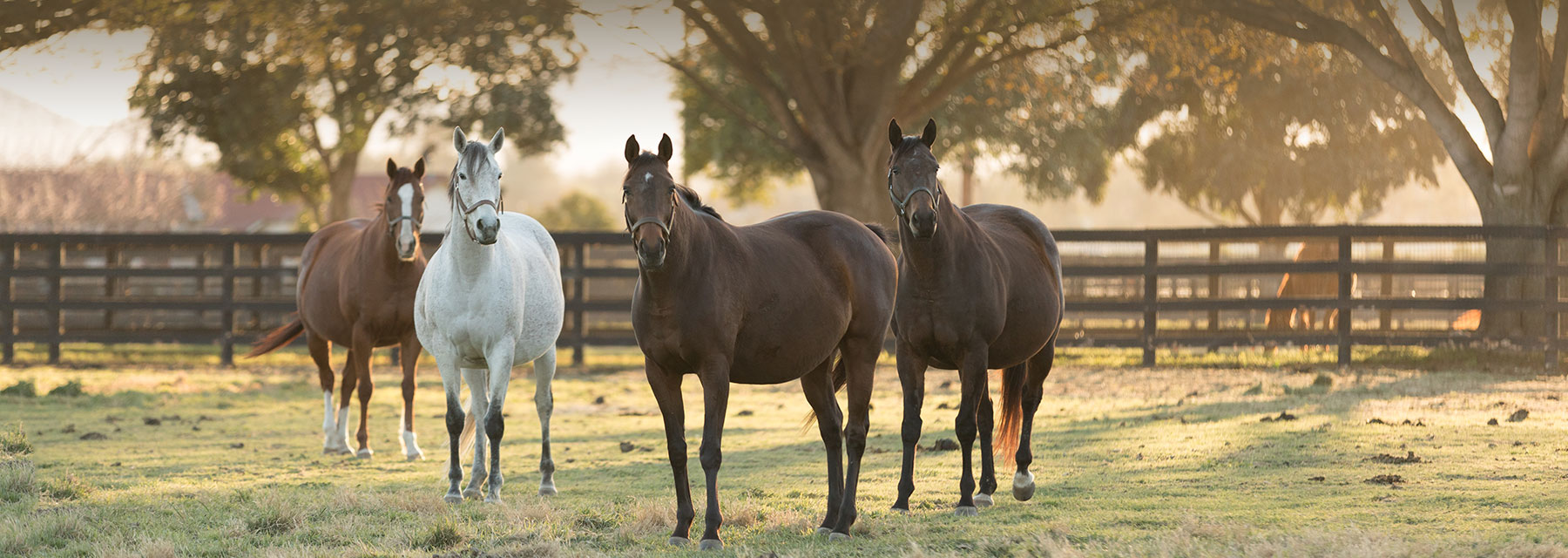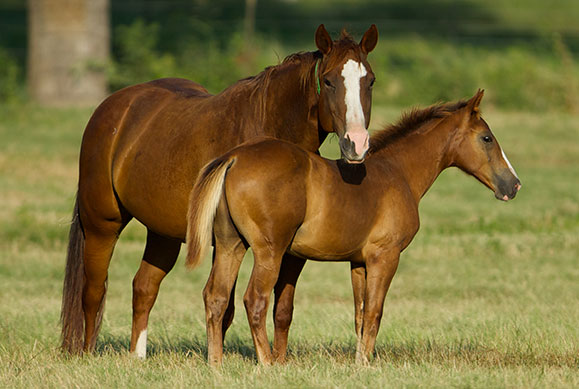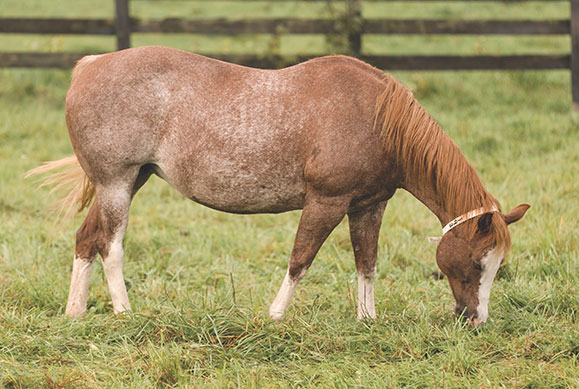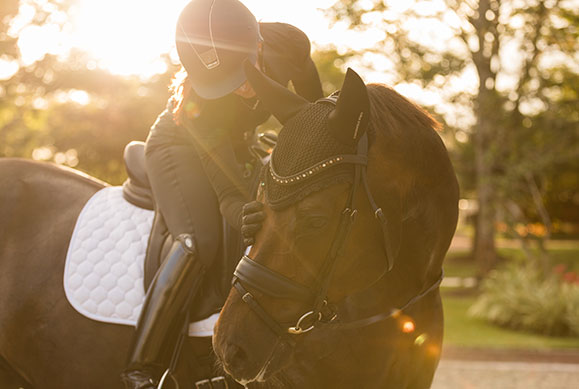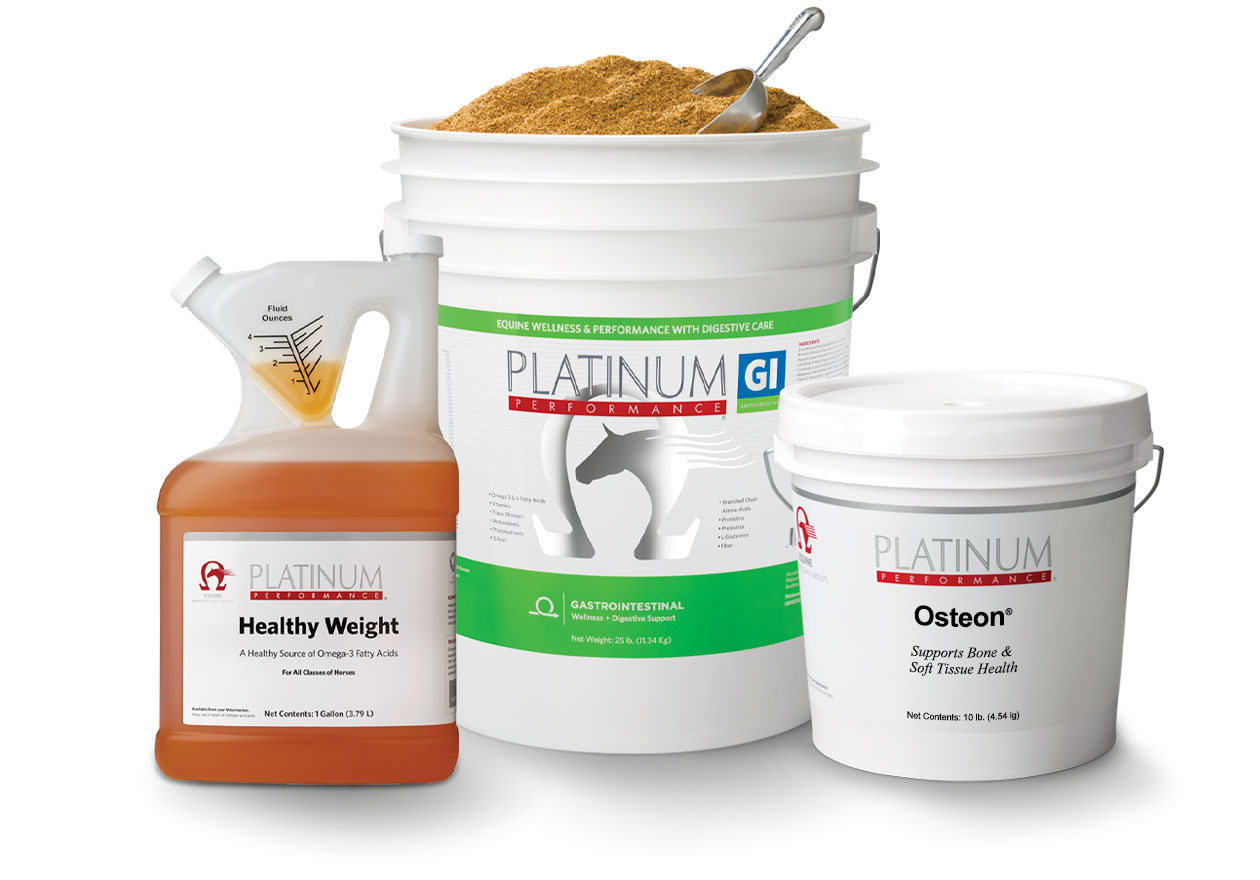
Supporting That Precious Cargo
Nutrition plays a pivotal role in supporting mares prior to breeding, during gestation and after foaling. In addition, advanced nutrition is used to help augment breeding success in sub-fertile and aged mares.
Shop Now“Nutrition allows us to help the entire horse, and it's one of our most important methods. There is more and more great research coming out regarding the benefits of nutrition, particularly omega-3 fatty acids and antioxidants. They affect so much on the outside of the horse that you just have to think there are positive effects on the inside, in the uterus and on the mare as an incubator.”
— Charlie Scoggin, DVM, MS, DACT, Rood & Riddle Equine Hospital
Choosing The Right Formulas to Support Your Broodmare
Mare Fertility
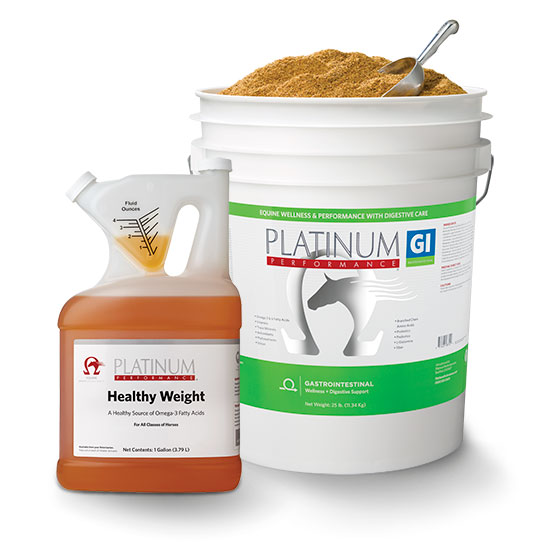
Administer 1 scoop of Platinum Performance® GI* twice daily. Feed 1/4 cup of Healthy Weight oil once daily.
Mare Fertility, Advanced
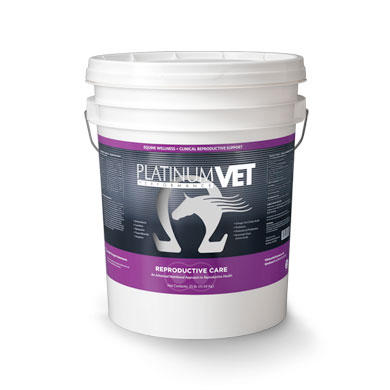
Administer two scoops daily of PlatinumVET™ Reproductive Care. Talk to your veterinarian or call a Platinum Advisor for more information.
Fetal Development (OCD)
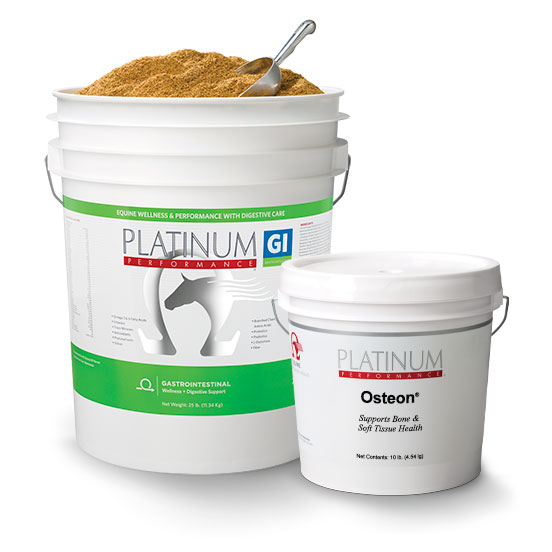
Administer 1 scoop of Platinum Performance® GI* and 1 scoop of Osteon® twice daily to pregnant mares.

 Follow the Science
Follow the Science
Influencing Pregnancy Rate
With a Natural Diet and Targeted Supplementation
A horse's intake of vital nutrients, including omega-3 fatty acids, amino acids, antioxidants, vitamins and trace minerals, has been shown to play a significant role in cellular health for improved outcomes, including reproductive success.
STUDY: A group of sub-fertile mares ranging in age from 6 to 25 years were fed a hay-based ration and a commercial grain-based feed (control diet), then were changed to a ration of hay and a comprehensive wellness formula for 8 to 16 weeks.
OUTCOME: Eggs were harvested when the mares were on the control diet and the supplemented diet and embryos were implanted into recipient mares. Pregnancy rates in mares on the supplemented diet improved from 23 percent to 51 percent, a 129 percent increase.
Improvements in Pregnancy Transfer Rates Following Supplementation with Platinum Performance® Equine Wellness and Performance Formula. Judy Merriott, DVM, and Elaine Carnevale, PhD, DVM, Colorado State University's Equine Reproduction Lab, 2008.
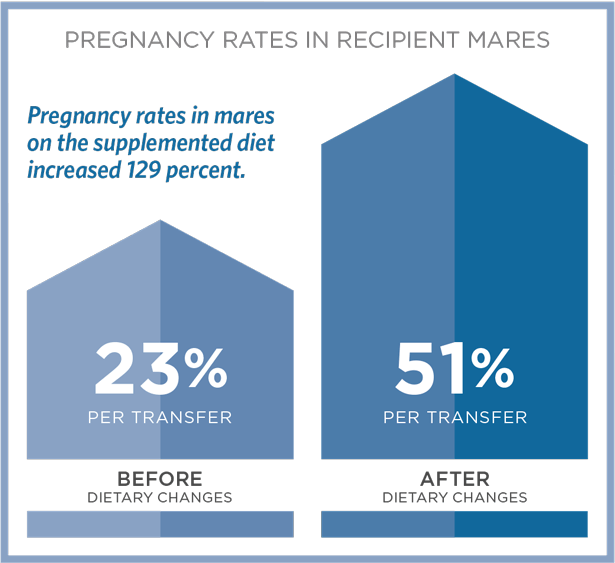
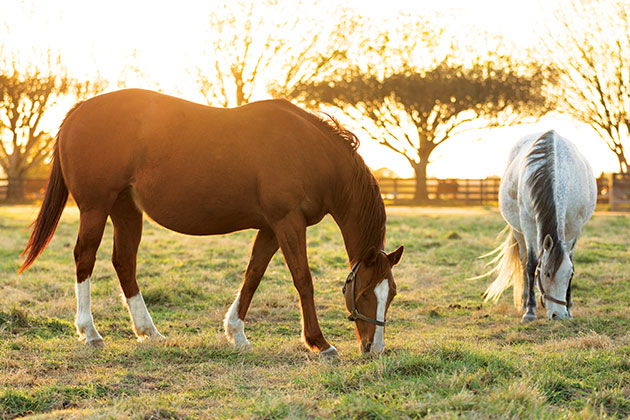
“A healthy mare is more likely to conceive, remain healthy through gestation and produce a well-developed foal. Just like in human pregnancy, the mare is the sole source of nourishment for her foal. When we feed the broodmare, we are feeding the foal.”
— Emily Smith, MS, Platinum Performance®
Health Tip
Providing omega-3 fatty acids, antioxidants, vitamins and both macro and trace minerals can help support not only the fertility of the mare but also the health of the foal she is carrying while in utero and after birth. In addition, nourishing the gut with prebiotics, probiotics and glutamine can help support immune health and proper gut function before breeding, during gestation and after foaling.

